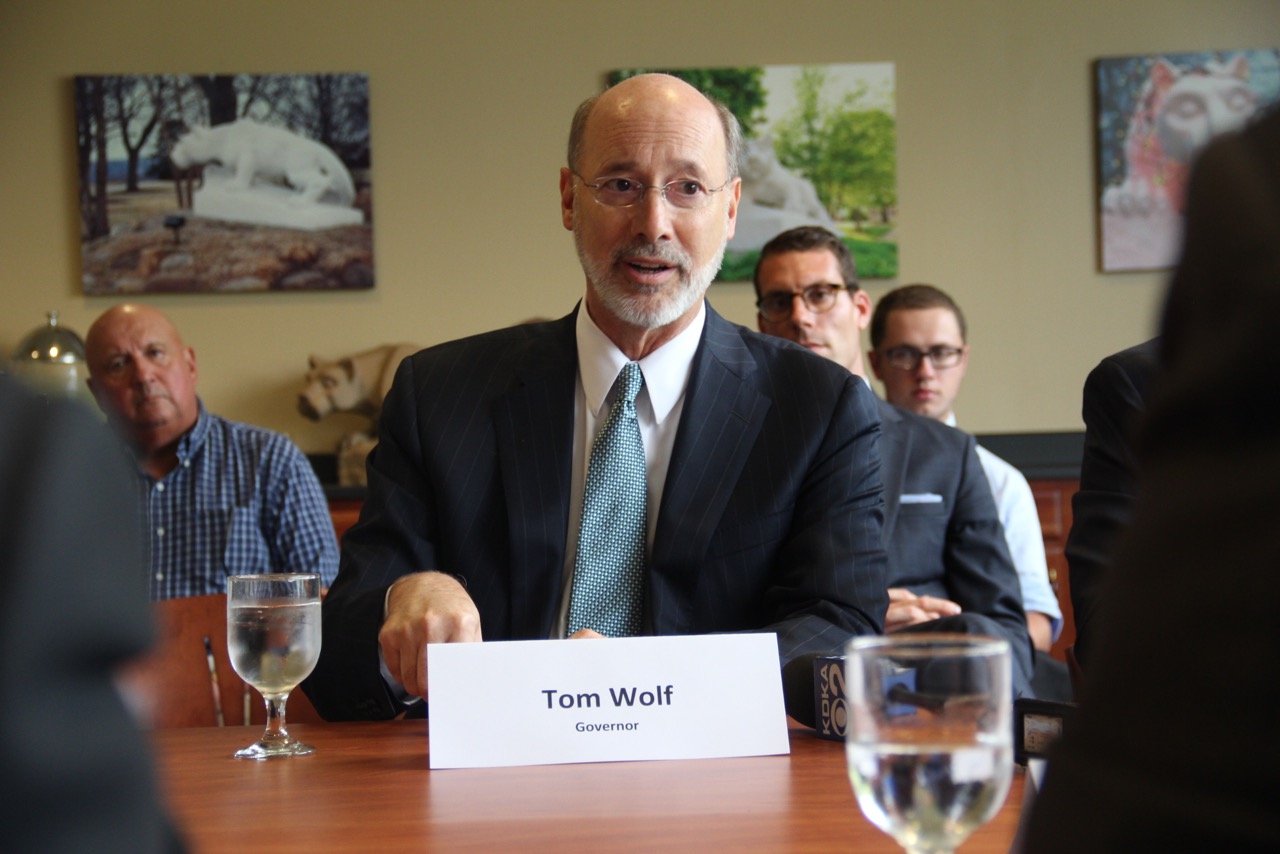Gov. Tom Wolf was in Beaver County Thursday to tout the economic benefits of Shell’s multi-billion dollar ethane cracker and discuss the challenges ahead in building it.
Wolf spoke at what his office called a “roundtable” with local elected leaders and economic development officials.
The governor said the project will mean that Pennsylvania isn’t just an exporter of raw materials to other states, but will be using its own natural gas to build a new manufacturing base.
But Wolf said not everything about the project will be easy. One key challenge could be ensuring locals—not out-of-staters—are hired to build the plant. At its peak, the construction of the cracker will employ 6,000 workers.
Wolf and others at the meeting said it will be essential to make sure the region can supply not only a skilled workforce, but workers who can pass the industry-standard drug test. Asked if the jobs to build the plant would go to Pennsylvanians, Wolf said he thought they would.
“The jobs that are going to be created are jobs that are going to be day-in, day-out jobs,” he said. “[Workers are] not going to be able to come in, live here a couple months and go back home. So I think if we get this right, these are going to be jobs that stay here.”
Wolf said former Gov. Tom Corbett, who laid the groundwork for the project with a $1.65 billion tax break for Shell, “deserves real credit” for helping land the plant.
At the meeting, locals also appealed to Wolf for more help from Harrisburg for aid in preparing for the multi-year construction project. Among the asks: Things like workforce training, addressing the state’s current drug crisis to keep workers eligible to work at the plant and ensuring the safety of the locks and dams along the Ohio River.
Wolf also heard pleas from local officials wanting more help with infrastructure like pipelines, which Shell will need to funnel natural gas from the surrounding region to the cracker. The plant will make the building blocks of plastics out of that gas.
“There is something being asked of us now to prepare for that we are not necessarily skilled to meet,” said Rebecca Matsco, chair of the Potter Township Board of Supervisors.
Wolf said one thing the state could do is make sure the environmental permitting process is as seamless as possible for Shell. Environmentalists have appealed Shell’s air permit, saying it could make air quality in the Pittsburgh region worse.
“This is going to be all hands on deck. We’ve got to get things moving—not to compromise on the environment—but to make sure we do it right and as quickly as we can.”
Wolf said if all goes well, the project would transform Beaver County for decades. “If the cracker plant does what I think it’s going to do—and if we do what we need to do with the education and transportation and all the other infrastructure—then these jobs are going to be here for years.”



